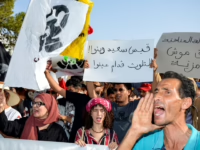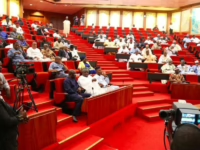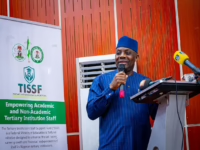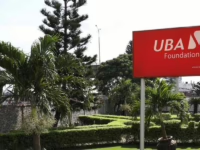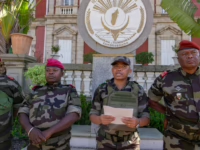The Anglican Diocese of Ekiti has refuted recent allegations made by veteran journalist and former presidential aide Babafemi Ojudu, who claimed that a burial ceremony at St. Paul’s Anglican Church, Ise-Ekiti, was exploited as a fundraising event.
Ojudu’s Facebook post, titled “The Day Mourners Rebelled in Church,” described how attendees at the funeral of Mrs. Kehinde Ajifolawe-known locally as Kenny Ise, a trader and politician-allegedly protested after the officiating minister reportedly solicited donations and publicly criticized the family for what was deemed an insufficient thanksgiving offering.
This post rapidly gained traction online, sparking widespread indignation and reigniting debates about the commercialization of religious rites in Nigeria.
In response, the Diocese issued an official statement on Tuesday, labeling Ojudu’s narrative as “inaccurate and misleading.” They affirmed that the funeral proceeded peacefully and adhered strictly to Anglican liturgical practices.
Signed by Venerable Samuel Agunbiade, the Diocesan Communicator acting on behalf of Rt. Rev. Andrew Ajayi, Bishop of Ekiti Diocese (Anglican Communion), the statement revealed that an internal review found no evidence of fundraising or exploitation during the service.
The Diocese clarified that Mrs. Ajifolawe was 60 years old, contrary to reports suggesting she was in her fifties. Although she was not a financial member of the church, she was granted a burial service in a spirit of unity and peace.
Addressing the controversial ₦200,000 thanksgiving offering mentioned in Ojudu’s post, the church explained that this amount was voluntarily declared by the deceased’s niece on behalf of her children, with two other attendees independently contributing additional donations.
“Contrary to assertions that the Vicar, The Venerable Kehinde Adeona, rejected or disparaged the donation, the ₦200,000 offering was willingly presented by the niece representing the children,” the statement clarified. “Moreover, two other individuals spontaneously added their contributions-these acts were heartfelt and unsolicited by the church.”
The Diocese attributed the reported unrest during the burial not to the officiating minister’s conduct but to a separate financial dispute.
“Eyewitnesses confirm the service was orderly and peaceful. However, three individuals arrived amid rainfall, claiming the deceased owed them ₦18.5 million and demanded the burial be halted until the debt was settled,” the statement detailed.
“The Vicar, exercising pastoral judgment, declined their request to address the congregation. The only disturbance occurred post-service at the graveside, stemming from this external debt issue-not from any actions by church officials.”
Reiterating its dedication to ethical standards and transparency, the Diocese emphasized that the Anglican Church in Ekiti does not condone the commercialization of burial ceremonies.
“The Diocese of Ekiti maintains the highest levels of pastoral integrity and Christian ethics. We urge the public, media, and the deceased’s family to remain composed, confident that truth and justice will prevail,” the statement affirmed.
“The Church remains a sanctuary of faith and compassion, not a venue for financial transactions, and we are steadfast in protecting this sacred trust.”
The Diocese also cautioned against the dissemination of falsehoods aimed at tarnishing the church’s reputation, calling on individuals to desist from spreading misleading accounts for any purpose.
In his viral post, Ojudu alleged that mourners were repeatedly pressured to donate and that the officiating minister disparaged the family’s ₦200,000 contribution as insufficient.
“When mourners rise up inside a church, it is not rebellion but a voice of conscience,” Ojudu wrote.
Nevertheless, the Diocese maintained that the funeral had been “severely mischaracterized,” reaffirming the Anglican Communion in Ekiti’s commitment to “pastoral honesty, truth, and compassion.”
“We continue to pray for the eternal rest of Mrs. Kehinde Ajifolawe’s soul and offer solace to her family,” the statement concluded.






